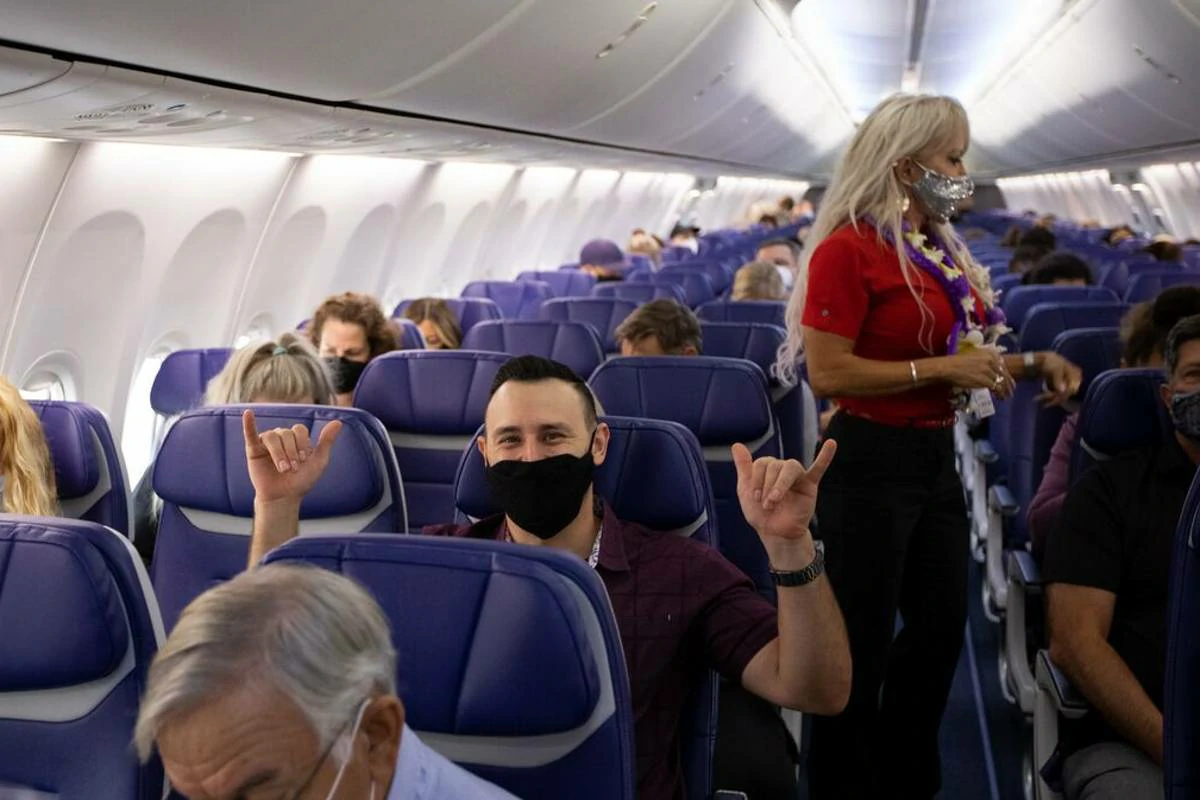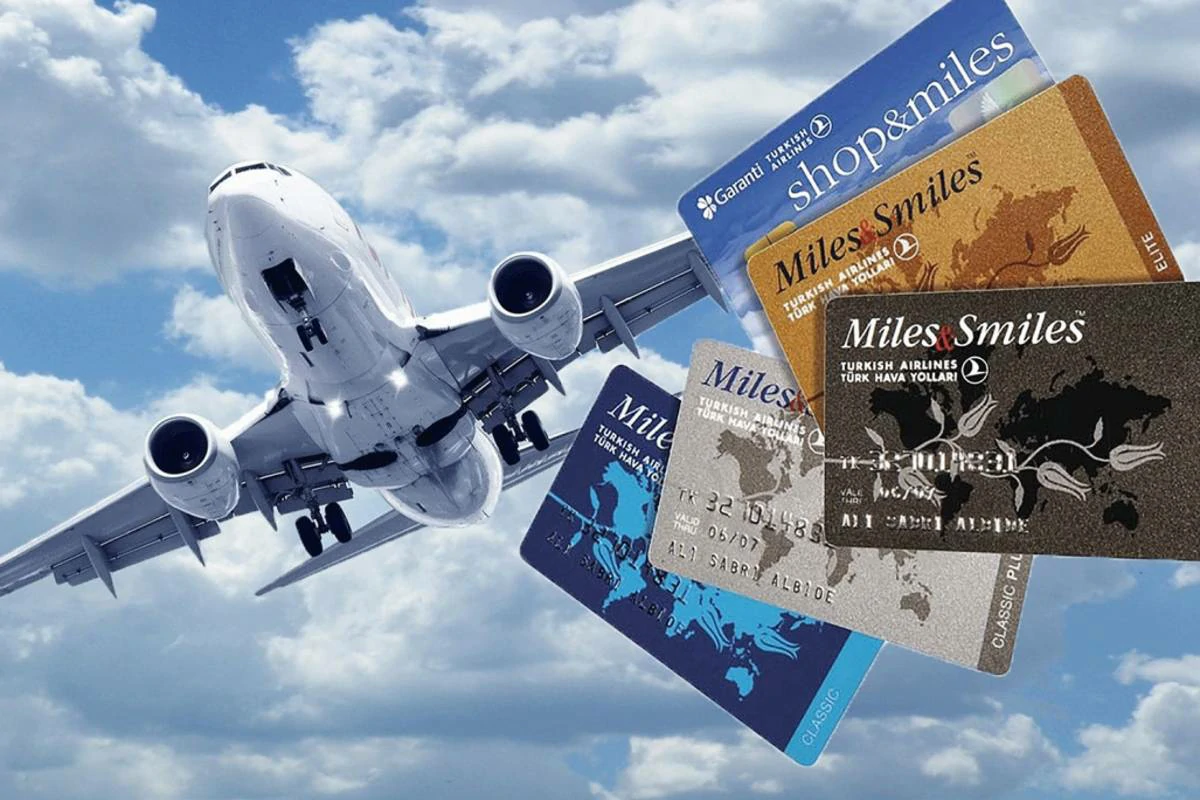When is the best time to book flights for the cheapest airfare in 2025? Answer is – While there’s no one-size-fits-all answer, booking domestic flights one to two months in advance and international flights three to five months in advance generally yields the best deals. Wednesdays are often the cheapest days to fly, and Sundays can sometimes offer deals. Flexibility with travel dates and times can also help you snag lower fares.
Summary
- Domestic Flights: Book 1-2 months in advance.
- International Flights: Book 3-5 months in advance.
- Cheapest Days to Fly: Wednesdays.
- Possible Deals: Sundays.
- Flexibility: Key to finding lower fares.
- Tools: Utilize flight search engines and fare alerts.
Book Flights for the Cheapest Airfare

Navigating the labyrinth of airfare prices can feel like a high-stakes game of chance. One day, you might stumble upon a seemingly unbeatable deal, only to find it has vanished the next.
The fluctuating nature of flight prices has led to countless theories and “hacks” on the “best” time to book.
But in a world of dynamic pricing algorithms and ever-changing demand, is there truly a magic window for securing the cheapest airfare?
Why Timing Matters
Let’s be clear: timing does play a significant role in the price you’ll pay for a flight. Airlines employ sophisticated revenue management systems that constantly adjust fares based on a multitude of factors, including:
- Demand: High demand typically means higher prices, especially during peak travel seasons and holidays.
- Competition: The number of airlines operating on a route and their respective pricing strategies can influence fares.
- Inventory: As seats on a flight fill up, the remaining ones may become more expensive.
- Time: The closer you get to your departure date, the more likely prices will rise, particularly for economy class seats.
Understanding these dynamics can help you make informed decisions about when to book your flights.
However, it’s important to remember that there’s no single “best” time that applies universally. The optimal booking window can vary depending on your destination, travel dates, airline, and even the day of the week you book.
Is There a Magic Booking Window?
The internet is rife with advice on the ideal time to book flights, often citing specific days or weeks as the sweet spot. While some of these recommendations might hold true in certain scenarios, they’re not hard and fast rules.
For instance, a common piece of advice is to book flights on Tuesdays at midnight. While this strategy might have worked in the past, when airlines tended to release fare sales on Tuesdays, it’s less relevant today.
Airlines now adjust prices frequently, sometimes multiple times a day, making it difficult to pinpoint a specific day or time as the most advantageous.
Similarly, the notion of a “prime booking window” – a specific timeframe within which you’re guaranteed the lowest fares – is often oversimplified.
While there are general trends to observe, such as booking domestic flights 1-2 months in advance and international flights 3-5 months in advance, these are just guidelines, not guarantees.
Hayley Berg Expert Opinion
“The truth is, there’s no silver bullet when it comes to finding the cheapest flights,” says Hayley Berg, Lead Economist at Hopper, a travel booking app. “The best approach is to start tracking prices early, set up fare alerts, and be flexible with your travel dates and times.”
Domestic Flight Booking

When it comes to booking domestic flights, timing is crucial to snag those coveted deals.
While the “perfect” booking window can vary depending on factors like the specific route and airline, there are some general guidelines that can help you score the best fares.
1. The Sweet Spot: 1-2 Months Before Departure
For most domestic flights within the United States, the sweet spot for booking tends to be one to two months before your intended departure date.
According to a 2023 study by Google Flights, domestic airfare prices tend to be lowest around 77 days before departure.
This window gives airlines enough time to gauge demand and adjust prices accordingly, while still leaving you with a decent selection of flights and fares.
Of course, this is just a general guideline. If you’re traveling during peak season, such as summer or holidays, you might want to consider booking even earlier – perhaps three to four months in advance – to avoid paying inflated prices.
Conversely, if you’re flexible with your travel dates and willing to take a chance on a last-minute deal, you might be able to find lower fares closer to your departure.
2. Early Bird or Last-Minute? Finding the Right Balance
The age-old debate of early bird versus last-minute booking continues to perplex travelers. While booking early can offer peace of mind and potentially lower fares, there’s always the risk that prices might drop further after you’ve made your purchase.
On the other hand, waiting until the last minute can be a gamble, as prices might skyrocket or flights might sell out entirely.
The key is to find a balance that suits your individual needs and risk tolerance. If you value predictability and want to secure your flights well in advance, booking early might be the best option.
However, if you’re willing to be flexible and potentially snag a last-minute bargain, keeping an eye on prices and booking when you see a good deal could pay off.
3. The Weekend Effect: Do Weekday Flights Offer Better Deals?
Contrary to popular belief, booking flights on weekends doesn’t necessarily guarantee lower fares.
In fact, some studies suggest that booking on weekdays, particularly Tuesdays and Wednesdays, might yield slightly better deals. This is because airlines often release fare sales during the week to attract business travelers.
However, the difference in price between weekday and weekend bookings is often negligible. The more important factor is to start your search early, track prices, and book when you see a fare that fits your budget.
Scott Keyes Expert Opinion
“The best time to book a domestic flight is when you see a price you’re comfortable with,” says Scott Keyes, founder of Scott’s Cheap Flights, a flight deal alert service. “Don’t get too hung up on trying to time the market perfectly. The most important thing is to be flexible and ready to book when you find a good deal.”
Tips
- Utilize flight comparison websites like Google Flights or Kayak to track prices and set up fare alerts.
- Consider flying on off-peak days or times, such as early mornings or late evenings, to potentially snag lower fares.
- Be open to flying with different airlines or connecting flights, as these options can often be more affordable than direct flights on a single carrier.
- Sign up for airline newsletters and loyalty programs to receive exclusive deals and discounts.
International Flight Booking

Venturing beyond your home country opens up a world of exciting possibilities, but it often comes with a heftier price tag when it comes to airfare.
However, by understanding the nuances of international flight booking, you can increase your chances of finding the best deals and making your dream trip a reality.
1. Planning Ahead: 3-5 Months is the Golden Rule
Unlike domestic flights, international flights typically require a longer booking window to secure the most affordable fares.
Experts generally recommend booking international flights three to five months before your planned departure date.
This timeframe allows you to take advantage of early bird discounts and promotions while still having a wide selection of flights and airlines to choose from.
The reasoning behind this timeframe is twofold. First, airlines tend to release their initial inventory of seats at lower prices to attract early bookers and gauge demand.
As these seats fill up, prices gradually increase. Second, booking several months in advance gives you more time to monitor price fluctuations and potentially snag a deal if fares drop.
Sally French Expert Opinion
“For international travel, it’s generally best to start looking about six months before your trip and book three to five months out,” advises Sally French, a travel expert and writer for The Points Guy. “This is when airlines tend to offer the most competitive fares.”
2. Peak Season vs. Off-Season: Navigating Price Fluctuations
Just like domestic flights, international airfare prices are heavily influenced by seasonality.
Peak travel seasons, such as summer holidays, school breaks, and major events, typically see a surge in demand, resulting in higher prices.
Conversely, off-season travel can offer significant savings as airlines compete for passengers with lower fares and promotions.
To navigate these price fluctuations, it’s crucial to plan your trip accordingly.
If you’re flexible with your travel dates, consider traveling during shoulder seasons – the periods between peak and off-season – when prices are often more moderate.
If you must travel during peak season, booking as early as possible is essential to avoid paying top dollar.
3. The Role of Airlines and Destinations: Specific Considerations
While the 3-5 month rule is a good starting point, there are some exceptions and nuances to consider depending on the specific airline and destination.
Some airlines, especially budget carriers, might offer flash sales or promotions closer to the departure date.
It’s worth signing up for their email alerts or following them on social media to stay informed about these deals.
However, it’s important to note that these last-minute deals often come with restrictions, such as limited availability or non-refundable fares.
Tracy Stewart Expert Opinion
“The best time to book an international flight can vary widely depending on the destination and airline,” says Tracy Stewart, content editor for Airfarewatchdog. “It’s always a good idea to start your search early, track prices, and be flexible with your travel dates to maximize your chances of finding a deal.”
The Day of the Week: Does it Really Matter?

While the “best” day to book a flight might be a myth, the day you choose to fly can indeed impact the price of your airfare. Let’s delve into the nuances of each day to help you make an informed decision.
1. Wednesdays: The Cheapest Day to Fly (Usually)
Historically, Wednesdays have held the reputation for being the cheapest day to fly. This trend stems from the fact that business travelers, who are often less price-sensitive, tend to fly on Mondays and Fridays to maximize their workweek. Airlines, therefore, often offer lower fares on Wednesdays to fill empty seats.
A 2023 study by Expedia Group confirms this trend, revealing that Sunday is the most expensive day for domestic flights while Friday is the priciest for international travel. In contrast, Wednesday consistently emerges as the most affordable option for both domestic and international routes.
2. Sundays: A Mixed Bag with Potential for Deals
While Sundays are generally not the cheapest day to fly, they can present some opportunities for savings, particularly on domestic routes. Airlines sometimes offer weekend deals to attract leisure travelers, so it’s worth checking for Sunday specials if you’re flexible with your travel dates.
However, be prepared for a mixed bag. While you might find some discounted fares, Sundays can also be quite expensive, especially during peak travel periods. The key is to be vigilant and compare prices across different days to see if Sunday truly offers the best value for your specific itinerary.
3. Weekends: Generally More Expensive, But Not Always
Weekends, especially Saturdays, are typically the most expensive days to fly. This is because leisure travelers, who often have more flexibility with their schedules, tend to prefer weekend travel. Airlines capitalize on this demand by charging higher fares for weekend flights.
However, there are exceptions to this rule. If you’re flying on a less popular route or during off-peak season, you might find competitive fares even on weekends. Additionally, some airlines might offer last-minute deals on weekend flights to fill empty seats.
Scott Keyes Expert Opinion
“While Wednesday is often the cheapest day to fly, it’s important to remember that there are no guarantees in the world of airfare pricing,” says Scott Keyes, founder of Scott’s Cheap Flights. “The best approach is to be flexible with your travel dates and times, track prices, and book when you see a fare that fits your budget.”
Holiday Travel Booking

Holiday travel presents a unique set of challenges and opportunities for finding affordable flights. Increased demand and limited availability can drive prices up, but with careful planning and strategic booking, you can still secure a good deal.
Here’s a breakdown of the best practices for booking flights during popular holiday periods:
1. Summer: Book Early (2-3 Months) and Avoid Peak Weeks
Summer is a popular time for family vacations and getaways, resulting in higher airfare prices. To get the best deals, experts recommend booking your summer flights two to three months in advance. This allows you to take advantage of early bird discounts and secure your preferred itinerary before prices start to climb.
It’s also wise to avoid peak travel weeks, such as the Fourth of July and the weeks surrounding major holidays. Instead, consider traveling during the shoulder seasons, the weeks before and after peak periods, when demand and prices tend to be lower.
2. Thanksgiving and Christmas: Aim for 3-4 Months in Advance
Thanksgiving and Christmas are notoriously expensive times to travel, as millions of people take to the skies to reunite with family and friends. To avoid paying exorbitant fares, it’s crucial to book your holiday flights well in advance. Aim for three to four months before your planned departure date to secure the best deals.
Flexibility with your travel dates can also be a game-changer during the holidays. If you’re able to travel on off-peak days, such as Thanksgiving Day itself or Christmas Eve, you might find significantly lower fares than those who travel on the busiest days.
3. Spring Break: Be Flexible and Consider Shoulder Seasons
Spring break is another popular travel period, especially for families with school-aged children. The timing of spring break can vary depending on the school district, but it typically falls between March and April. To find the best deals for spring break travel, flexibility is key.
Consider traveling during the shoulder seasons, the weeks before and after the peak spring break weeks. You might also find better deals by flying on weekdays instead of weekends. If you’re open to alternative destinations, look for less popular spring break spots that might offer lower airfare prices.
Hayley Berg Expert Opinion
“The key to finding affordable flights during the holidays is to plan ahead and be flexible,” says Hayley Berg, Lead Economist at Hopper. “By booking early, avoiding peak travel dates, and considering alternative destinations, you can significantly increase your chances of finding a good deal.”
Tips
- Set fare alerts: Use flight comparison websites like Google Flights or Kayak to track prices for your desired itinerary and receive alerts when fares drop.
- Consider alternative airports: Flying into or out of smaller airports can sometimes be cheaper than major hubs.
- Bundle your flight and hotel: Many airlines and travel agencies offer package deals that can save you money on both your flight and accommodation.
- Be open to connecting flights: While direct flights might be more convenient, connecting flights can often be more affordable.
Tools and Tips for Finding Cheap Flights

In the quest for budget-friendly flights, having the right tools and strategies in your arsenal can make all the difference. Let’s explore some tried-and-true methods for uncovering those hidden gems and making your travel dreams more affordable.
1. Flight Search Engines: Comparing Prices and Setting Alerts
Flight search engines like Google Flights, Skyscanner, and Kayak are invaluable resources for comparing prices across multiple airlines and dates.
These platforms allow you to filter your search by various criteria, such as price, airline, stops, and travel times, making it easier to find the most suitable options for your needs and budget.
One of the most powerful features of flight search engines is the ability to set price alerts. By inputting your desired itinerary and setting a price threshold, you’ll receive notifications when fares drop below your target price.
This eliminates the need for constant manual checking and ensures you don’t miss out on potential deals.
Brian Kelly Expert Opinion
“Google Flights is my go-to tool for finding cheap flights,” says Brian Kelly, founder of The Points Guy, a popular travel website. “It’s incredibly user-friendly and offers a wealth of information, including price trends and historical data, to help you make informed booking decisions.”
2. Airline Newsletters and Loyalty Programs: Exclusive Deals
Signing up for airline newsletters and joining their frequent flyer programs can give you access to exclusive deals and discounts that aren’t available to the general public.
Airlines often send out email alerts about flash sales, limited-time promotions, and special fares for their loyalty members.
While loyalty programs might not always offer the absolute lowest prices, they can provide additional perks and benefits, such as priority boarding, free checked bags, and lounge access.
These can enhance your overall travel experience and make your trip more enjoyable.
3. Flexibility with Dates and Times: The Power of Being Adaptable
Flexibility is perhaps the most potent weapon in your arsenal for finding cheap flights. By being open to traveling on different days or at different times, you significantly increase your chances of finding lower fares.
For instance, flying on weekdays instead of weekends, or opting for early morning or late-night flights, can often yield more affordable options.
Additionally, consider traveling during off-peak seasons or shoulder seasons when demand is lower and prices are more competitive.
Gary Leff Expert Opinion
“Flexibility is key to finding cheap flights,” says Gary Leff, founder of View from the Wing, a travel blog. “If you’re willing to be flexible with your travel dates and times, you’ll be amazed at the deals you can find.”
Additional Considerations

Beyond the basic strategies of timing and tools, several additional factors can influence the price you pay for a flight. Understanding these nuances can further empower you to make savvy decisions and potentially uncover hidden savings.
1. The Impact of Airline Sales and Promotions
Airlines frequently offer sales and promotions to attract customers and fill empty seats. These can include flash sales, seasonal discounts, and special fares for specific destinations.
Staying informed about these promotions can lead to significant savings, especially if you’re flexible with your travel dates and destinations.
To stay in the loop, sign up for airline newsletters, follow them on social media, and check their websites regularly for deals.
Additionally, consider using flight deal alert services like Scott’s Cheap Flights or Airfarewatchdog, which scour the web for discounted fares and send notifications directly to your inbox.
Scott Keyes Expert Opinion
“Airline sales can be a great way to save money on flights, but it’s important to act fast,” says Scott Keyes, founder of Scott’s Cheap Flights. “These deals often have limited availability and expire quickly, so be prepared to book when you see a good one.”
2. The Role of Fare Prediction Tools and Apps
Fare prediction tools and apps like Hopper and Google Flights offer insights into future price trends, helping you determine whether to book now or wait for a potential price drop.
These tools analyze historical data and current market conditions to forecast how fares are likely to change over time.
While these predictions aren’t always foolproof, they can be a valuable resource for making informed decisions, especially if you’re flexible with your travel dates.
If the tool predicts that prices are likely to decrease, you might want to wait a few days or weeks before booking. Conversely, if prices are expected to rise, it might be wise to book sooner rather than later.
3. The Importance of Booking Directly with Airlines
While online travel agencies (OTAs) like Expedia and Priceline can be convenient for comparing prices, booking directly with the airline can sometimes offer advantages.
Airlines often have exclusive deals and promotions that aren’t available through OTAs. Additionally, booking directly can make it easier to manage your reservation, make changes, or get assistance in case of flight disruptions.
Some airlines also offer price matching guarantees, meaning they’ll match a lower fare you find elsewhere if you book directly with them. This can be a valuable perk, especially if you find a cheaper fare on an OTA but prefer the convenience of booking with the airline directly.
Brett Snyder Expert Opinion
“Booking directly with airlines can give you more control over your reservation and access to exclusive deals,” says Brett Snyder, founder of Cranky Flier, a travel blog. “It’s always worth checking the airline’s website before booking through an OTA to see if you can find a better deal.”
FAQs
Is there a specific time of day that’s best for booking flights?
While there isn’t a magic hour for booking flights, airlines tend to adjust prices throughout the day based on demand and other factors. However, some studies have suggested that booking in the early morning or late at night might yield slightly lower fares due to less competition from other travelers.
Do budget airlines always offer the cheapest fares?
Not necessarily. While budget airlines often have lower base fares, they might charge extra fees for amenities like checked bags, seat selection, and in-flight meals. It’s important to factor in these additional costs when comparing prices to ensure you’re getting the best overall value.
Should I book my flight through an online travel agency (OTA) or directly with the airline?
Both options have their pros and cons. OTAs like Expedia and Kayak can be convenient for comparing prices across multiple airlines, while booking directly with the airline can offer benefits like exclusive deals, easier reservation management, and potential price matching guarantees. Consider your priorities and weigh the pros and cons of each option before making your decision.
How can I protect myself against flight cancellations or delays?
Consider purchasing travel insurance, which can reimburse you for non-refundable expenses like airfare and hotel costs if your trip is canceled or interrupted due to unforeseen circumstances. Additionally, familiarize yourself with the airline’s cancellation and rebooking policies so you know your options in case of a flight disruption.
What are some additional tips for finding cheap flights?
- Be flexible with your travel dates and times.
- Consider alternative airports.
- Fly during off-peak seasons or shoulder seasons.
- Look for package deals that bundle your flight and hotel.
- Be open to connecting flights or alternative routes.
- Clear your browser cookies or use incognito mode when searching for flights.
- Use a VPN to potentially access lower fares in different regions.
Is there a day that’s cheaper than others to book a flight?
Generally, Sundays offer the most savings for domestic flights, while international flights see the most savings on Wednesdays.
What’s the best day to travel?
Wednesdays are often the cheapest days to fly.
When to book holiday travel?
Book summer travel 2-3 months in advance and holiday travel 3-4 months in advance.
The Bottom Line
In the ever-evolving landscape of airfare pricing, there’s no one-size-fits-all answer to the question of when to book flights.
However, by understanding the factors that influence prices, utilizing the right tools, and employing smart strategies, you can significantly increase your chances of finding the best deals.
Remember, flexibility is key. Be open to adjusting your travel dates, times, and destinations, and don’t hesitate to take advantage of last-minute deals or flash sales when they arise.
By staying informed, being proactive, and embracing a bit of spontaneity, you can embark on your next adventure without breaking the bank.







